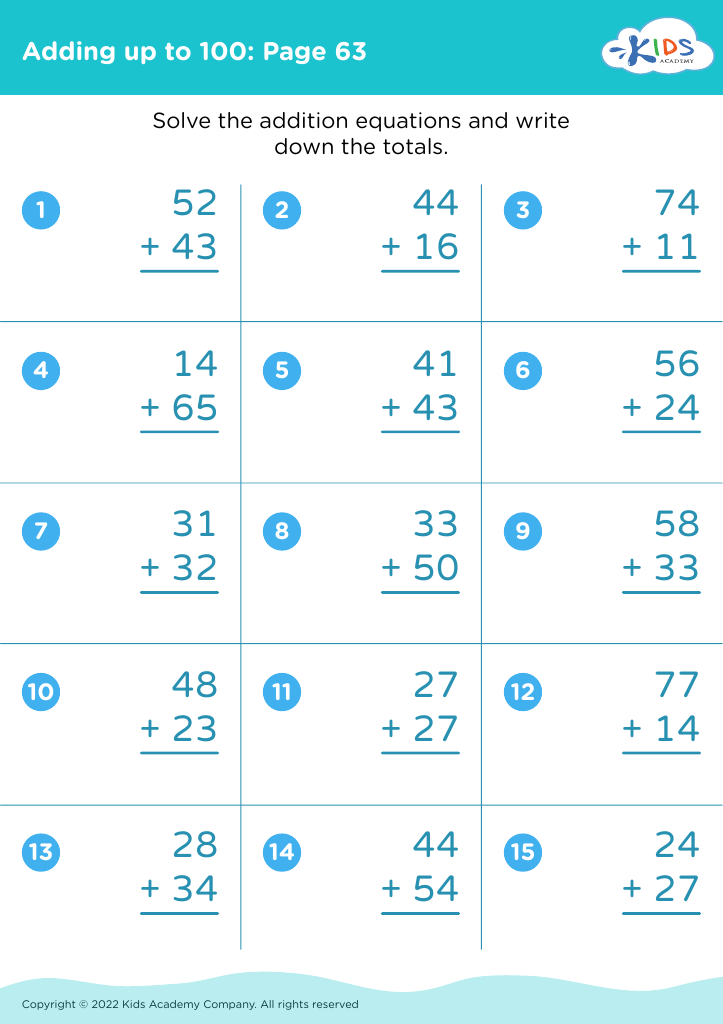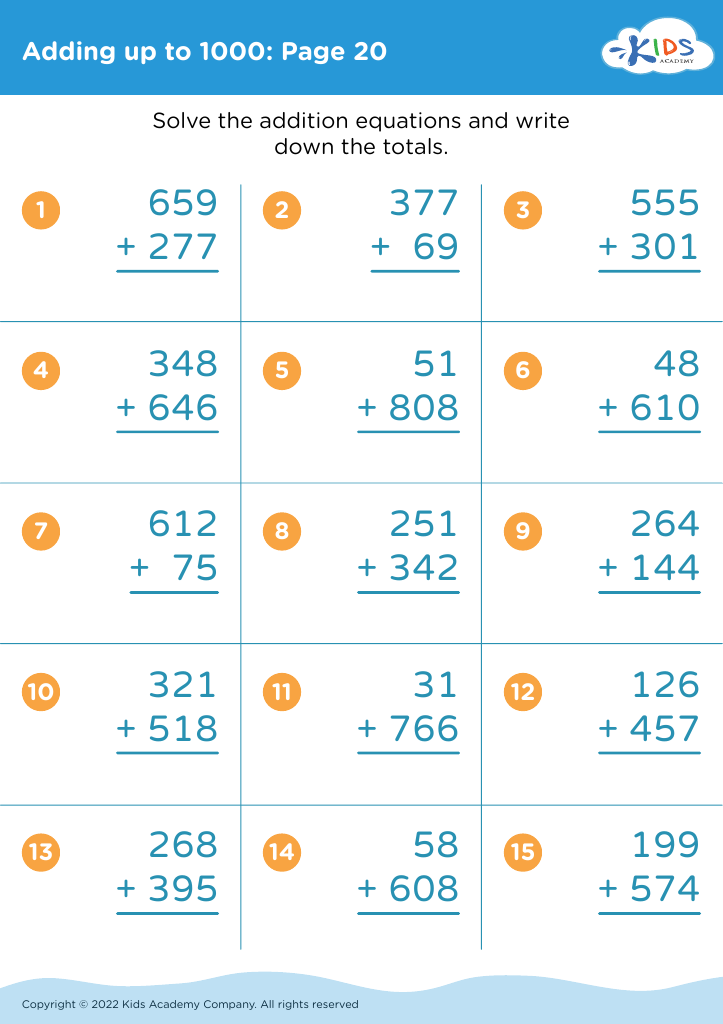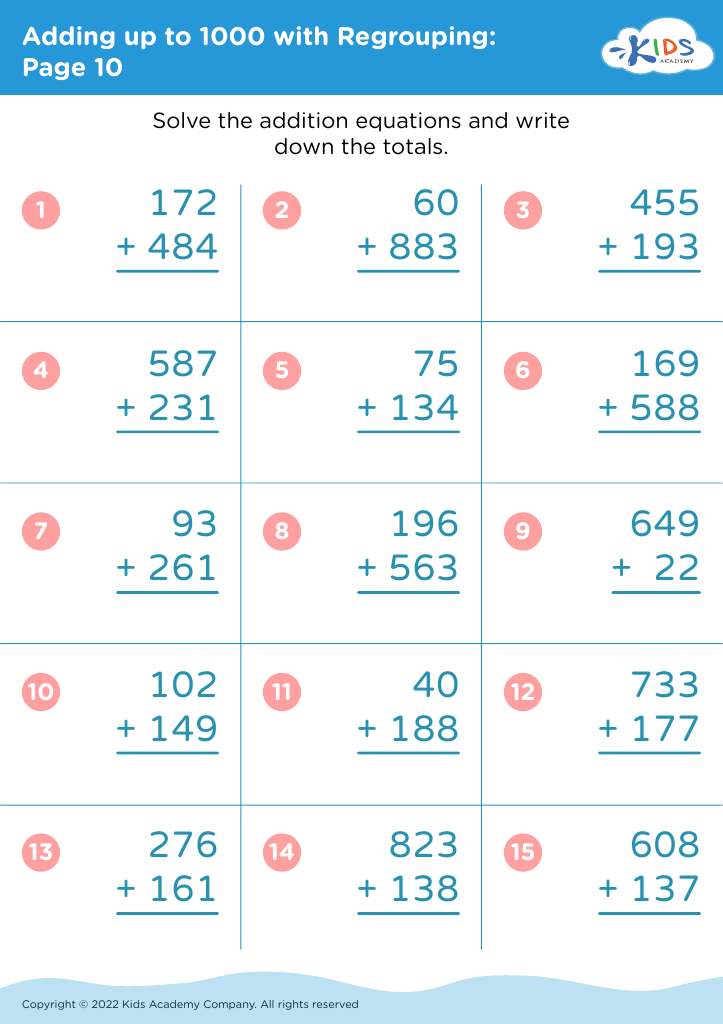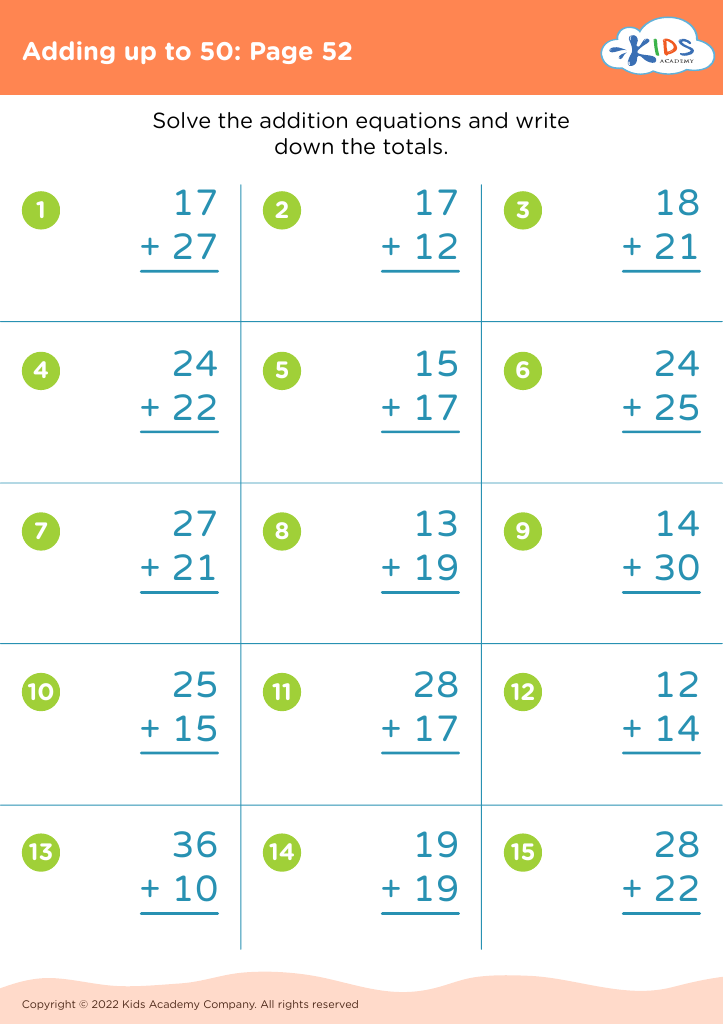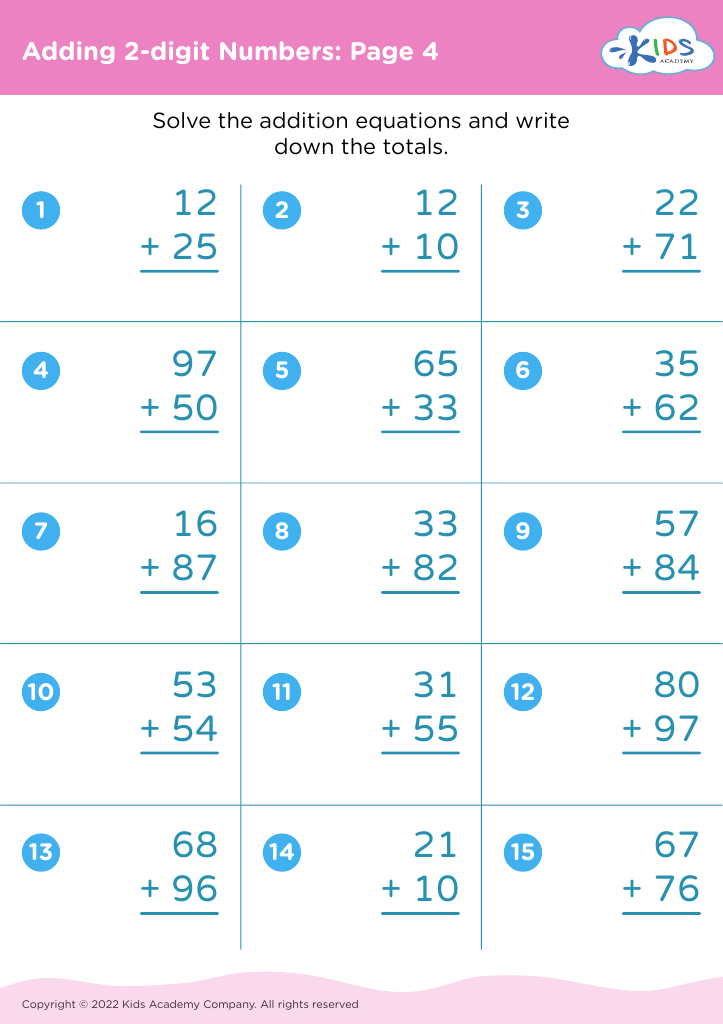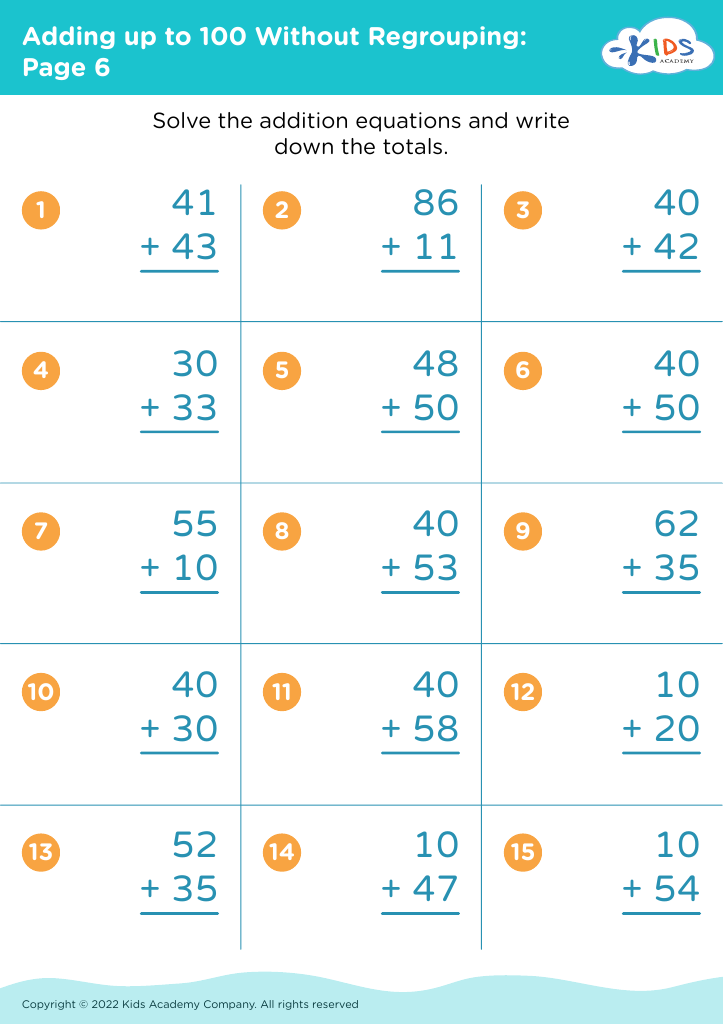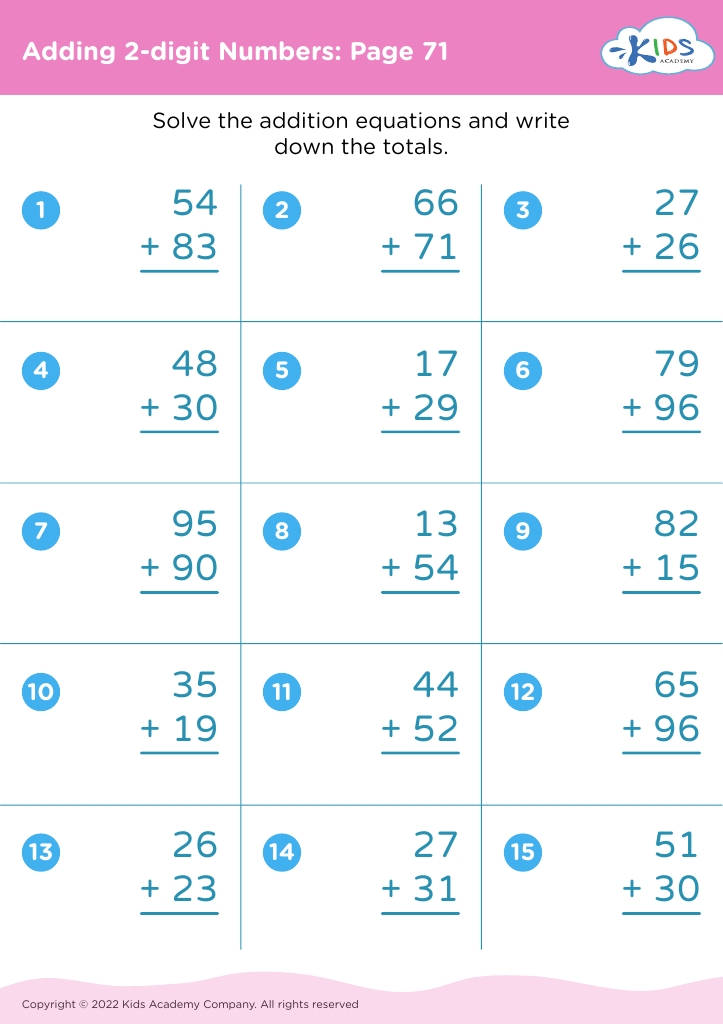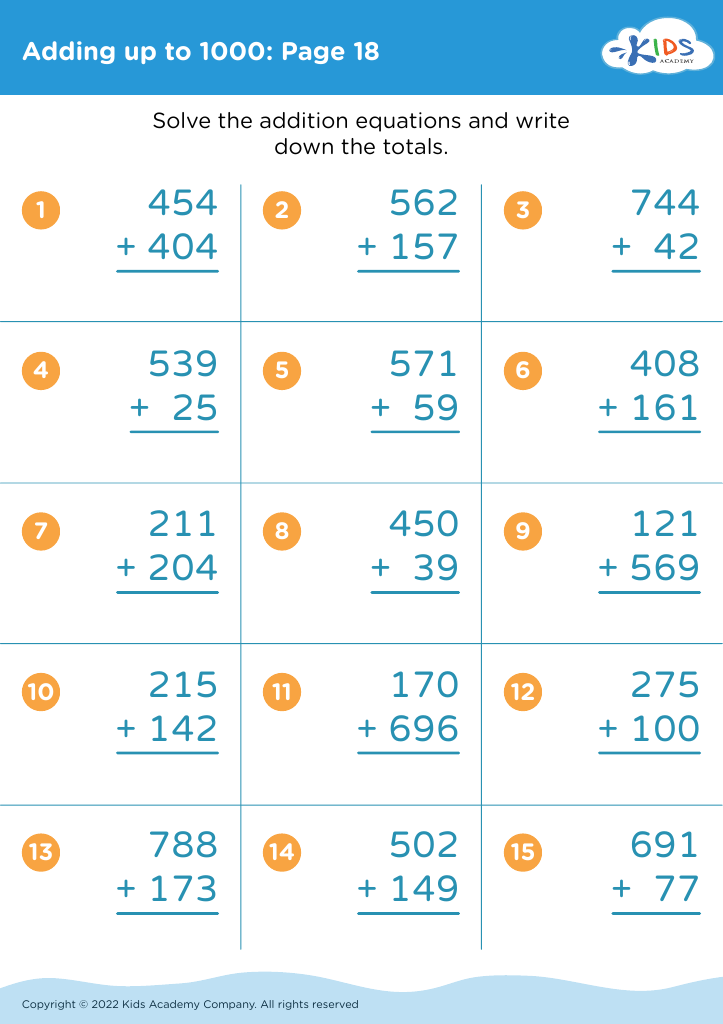Understanding symmetry Addition & Subtraction Worksheets for Ages 5-8
25 filtered results
-
From - To
Enhance your child's math skills with our "Understanding Symmetry: Addition & Subtraction Worksheets for Ages 5-8"! These engaging and educational worksheets combine fundamental arithmetic with the concept of symmetry, making learning fun and effective. Each worksheet is designed to capture young minds with vibrant illustrations and interactive exercises. Perfect for children between the ages of 5 and 8, these resources build a strong foundation in both addition and subtraction while introducing essential geometry skills. Discover a world of mathematical wonder and help your child develop critical thinking and problem-solving abilities with our expertly crafted educational materials.
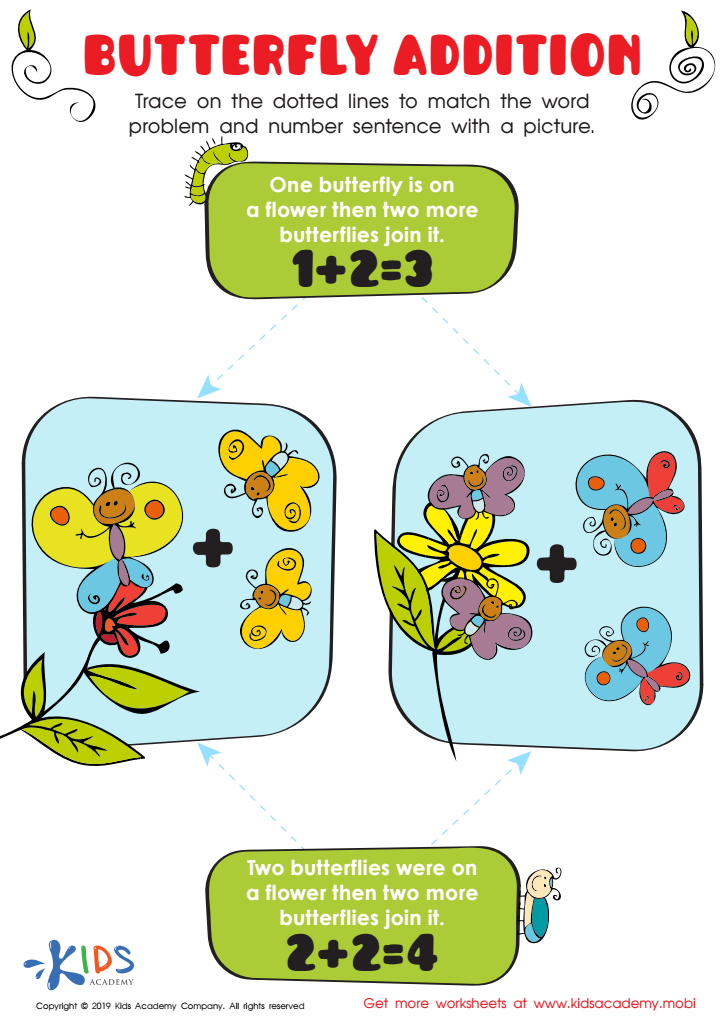

Butterfly Addition Worksheet
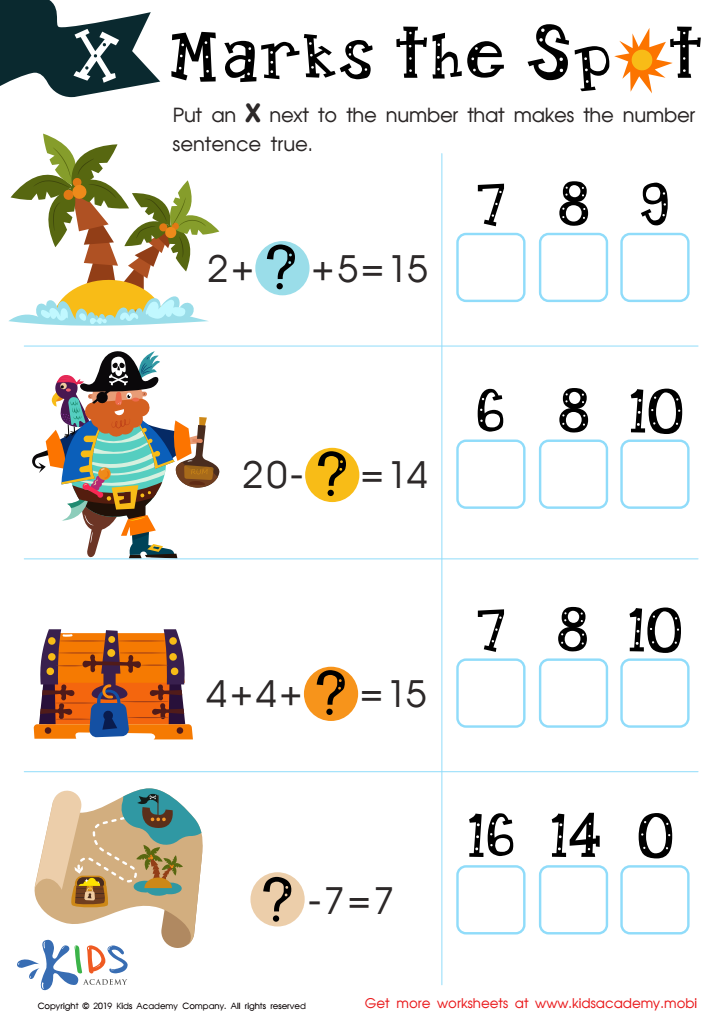

X Marks the Spot Worksheet
Understanding symmetry, addition, and subtraction plays a crucial role in a child’s cognitive and academic development, particularly for ages 5-8. Symmetry not only introduces children to basic geometric concepts but also hones their spatial awareness and ability to recognize patterns. This skill translates into improved problem-solving abilities and a foundation for more complex mathematical concepts later in life.
Addition and subtraction are fundamental arithmetic skills essential for daily functioning. Mastery of these basics fosters a sense of confidence and competence in handling numbers, which is critical as they progress through more advanced math. By engaging with these operations early on, children develop a solid understanding of number relationships, set the stage for mastery of multiplication and division, and create a clear mental representation of mathematical principles.
Moreover, early exposure to symmetry, addition, and subtraction forms an integral part of developing logical thinking and reasoning abilities. These skills not only benefit their mathematical learning but also enhance their overall cognitive abilities, including critical thinking and problem-solving across various subjects.
Parents and teachers who prioritize these foundational concepts equip children with the tools they need for academic success, setting a strong groundwork for lifelong learning and achievement. This proactive approach fosters a positive attitude towards mathematics and nurtures a child's natural curiosity and propensity for learning.
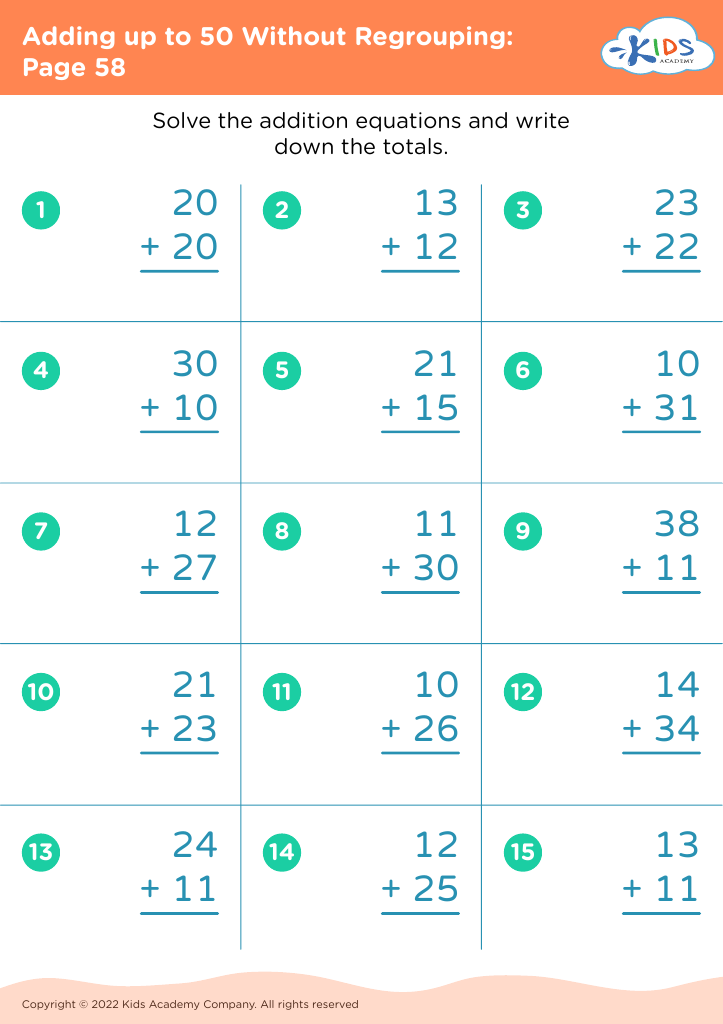


 Assign to My Students
Assign to My Students
